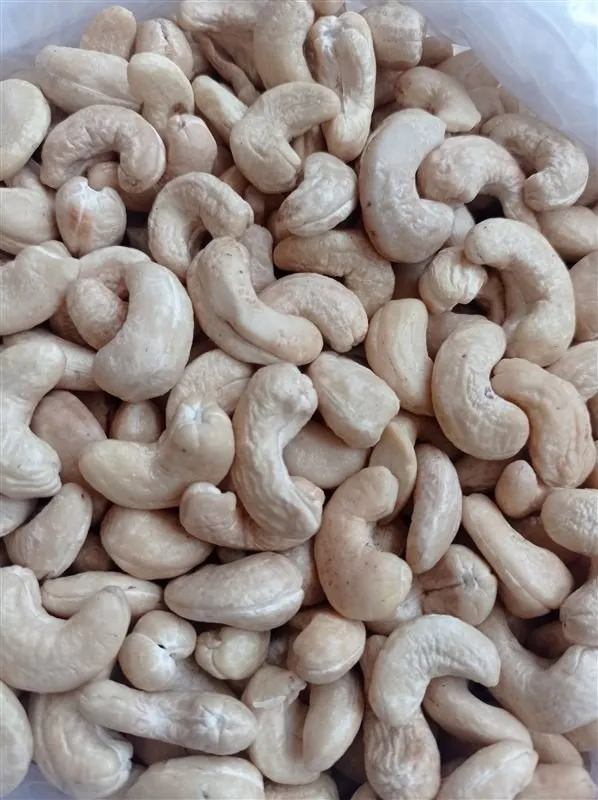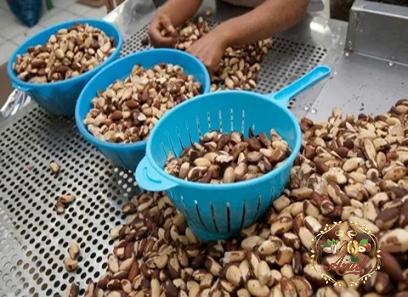India has emerged as one of the leading producers and exporters of cashew nuts globally, thanks to its robust cashew nut industry. With its rich availability of resources, skilled labor, and favorable climatic conditions, the country has cultivated a reputation for producing the highest quality cashew nuts worldwide. In this article, we will explore the cashew nut industry in India, its advantages, and its disadvantages.
Discussing the Cashew Nut Industry in India:
India’s cashew nut industry has experienced significant growth over the years. According to the Cashew Export Promotion Council of India (CEPCI), the country contributes approximately 20% of the global cashew nut production. The ideal combination of fertile soil, warm climate, and abundant rainfall in several regions of India provides the perfect environment for cashew trees to flourish.
India’s cashew nut industry primarily operates in the coastal areas, including states such as Kerala, Maharashtra, Andhra Pradesh, and Goa. These coastal regions offer proximity to ports, thus enabling smooth export operations. The industry has also witnessed significant expansion in other states like Tamil Nadu, Karnataka, and Odisha.

The Highest Quality of Cashew Nut Industry in India:
India takes pride in producing high-quality cashew nuts. The country’s focus on quality control and adherence to international standards have played a crucial role in its success. Indian cashew nuts are known for their large size, superior texture, and distinctive taste, making them highly sought after in international markets.
Furthermore, India’s cashew nut industry has honed its processing techniques to ensure excellent quality. The cashew nuts undergo a series of processes, including harvesting, sun drying, shelling, grading, roasting, and packaging. These meticulous procedures help maintain the nuts’ nutritional value and enhance their taste, thus meeting the stringent requirements of global consumers.
Advantages of the Cashew Nut Industry in India:

1. Abundant Resources: India possesses vast agricultural land, suitable climatic conditions, and natural resources required for cashew tree cultivation, giving the industry a competitive advantage.
2. Skilled Labor: The country is blessed with a large labor force, including skilled farmers and workers who are well-versed in cashew nut processing. This availability of skilled labor helps streamline the production process and ensures efficient management of the industry.
3. Export Potential: The global demand for cashew nuts has been steadily increasing, which presents endless opportunities for India’s cashew nut industry. India exports its cashew nuts to various countries, including the United States, European Union, Middle East, and Southeast Asia.
4. Employment Opportunities: The growth of the cashew nut industry has created numerous job opportunities in rural areas. This has helped in reducing unemployment rates and driving economic development in such regions.

Disadvantages of the Cashew Nut Industry in India:
1. Climate Change: While India benefits from favorable climatic conditions, climate change poses a significant challenge. Irregular rainfall patterns and rising temperatures can negatively impact cashew tree yield and quality, affecting the industry’s productivity.
2. Pest and Disease Management: Cashew trees are susceptible to various pests and diseases, including cashew leaf miner, stem and root borer, and powdery mildew. Proper pest management measures and disease control become crucial to combat these challenges effectively.
3. Price Fluctuation: The cashew nut market is subject to price fluctuations, which can impact the profitability and sustainability of the industry. Adequate market analysis, price monitoring, and strategic planning are necessary to mitigate these risks.

India’s cashew nut industry has established itself as a key player, dominating the global market with its high-quality production and export capabilities. The advantages, such as abundant resources, skilled labor, export potential, and employment opportunities, have contributed to the industry’s growth. However, challenges related to climate change, pest and disease management, and price fluctuation require continuous attention and innovation.
With proper management and an emphasis on sustainability, the cashew nut industry in India has the potential to thrive further and contribute significantly to the country’s economic growth, while satisfying the taste buds of cashew lovers worldwide.









